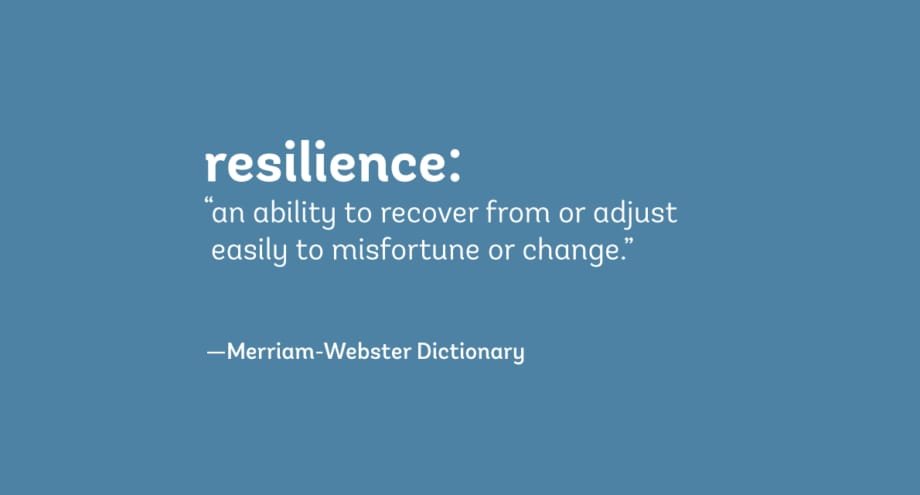How to adapt and thrive

NAVIGATING CHANGE-In an ever-changing world, the ability to navigate and adapt to change is not just a valuable skill; it’s a crucial one. Whether it’s a sudden career shift, global economic fluctuations, personal life transitions, or unprecedented events like a pandemic, change is an inevitable part of life. But change, especially when unexpected, can be daunting. The uncertainty it brings can lead to stress, anxiety, and a feeling of being overwhelmed.
Yet, amidst this uncertainty lies an opportunity. The opportunity to grow, to develop resilience, and to learn how to thrive despite the chaos. This blog will delve deep into the concept of navigating change, offering insights and strategies on how to adapt effectively and ultimately thrive, even when the ground beneath you seems to be shifting.
Understanding Change and Uncertainty

The Nature of Change
Change is a constant in life. From the moment we are born, we are subject to changes in our environment, our relationships, our physical and mental state, and our external circumstances. Change can be positive, such as a promotion at work, getting married, or moving to a new city. It can also be challenging, such as losing a job, going through a breakup, or dealing with health issues.
While some changes are predictable and manageable, others can be sudden and unexpected, leaving us feeling unprepared. It is these unexpected changes that often cause the most anxiety and discomfort, as they challenge our sense of control and stability.
The Psychology of Uncertainty
Uncertainty is a byproduct of change. When faced with uncertainty, the human brain tends to respond with fear and anxiety. This is because our brains are wired to seek out predictability and safety. When we don’t know what to expect, our stress response is activated, leading to feelings of worry, doubt, and sometimes even panic.
However, it’s important to understand that uncertainty is a natural part of life. While we may not always be able to control external circumstances, we can control how we respond to them. By shifting our mindset and developing certain skills, we can learn to navigate uncertainty with greater ease and confidence.
The Importance of Adaptability

Why Adaptability Matters?
Adaptability is the ability to adjust to new conditions or changes in one’s environment. It is a critical skill that allows individuals to respond effectively to challenges, overcome obstacles, and seize opportunities, even in the face of uncertainty.
In today’s fast-paced world, adaptability is more important than ever. Technological advancements, economic shifts, and global events are constantly reshaping the way we live and work. Those who can adapt quickly and efficiently are more likely to succeed and thrive, while those who resist change may find themselves struggling to keep up.
The Characteristics of Adaptable People

Adaptable people tend to share certain characteristics that enable them to navigate change successfully. These include:
– **Open-Mindedness:** Adaptable individuals are open to new ideas, perspectives, and experiences. They are willing to step outside their comfort zone and embrace change as an opportunity for growth.
– **Resilience:** Resilience is the ability to bounce back from setbacks and recover from difficult situations. Adaptable people are resilient, meaning they can handle stress and adversity without being overwhelmed.
– **Curiosity:** Curiosity drives adaptable people to seek out new information and learn from their experiences. They are constantly looking for ways to improve and grow.
– **Flexibility:** Adaptable individuals are flexible in their thinking and actions. They are willing to change their approach or try new strategies when faced with challenges.
– **Problem-Solving Skills:** Adaptable people are effective problem-solvers. They can assess a situation, identify potential solutions, and take action to address the issue.
Strategies for Adapting to Change
1. Embrace a Growth Mindset

A growth mindset, a term coined by psychologist Carol Dweck, is the belief that abilities and intelligence can be developed through effort, learning, and perseverance. This mindset is crucial when navigating change, as it encourages individuals to view challenges as opportunities for growth rather than threats.
– **Shift Your Perspective:** Instead of seeing change as a disruption, try to view it as a chance to learn and grow. Ask yourself, “What can I learn from this situation?” and “How can I use this experience to become stronger?”
– **Focus on the Process:** Emphasize the importance of effort and learning rather than focusing solely on outcomes. Celebrate small wins and progress, even if the final outcome is uncertain.
– **Challenge Yourself:** Seek out new experiences and challenges that push you outside your comfort zone. This will help you build confidence in your ability to adapt and grow.
2. Build Resilience

Resilience is the ability to recover from setbacks and persevere in the face of adversity. Building resilience is key to adapting to change, as it allows you to bounce back from challenges and continue moving forward.
– **Develop a Support System:** Surround yourself with supportive friends, family, and colleagues who can provide encouragement and guidance during difficult times.
– **Practice Self-Care:** Take care of your physical and mental health by getting enough sleep, eating a balanced diet, exercising regularly, and managing stress.
– **Cultivate Optimism:** Focus on the positive aspects of a situation and look for opportunities within challenges. Practice gratitude and positive thinking to maintain a hopeful outlook.
3. Stay Flexible and Open to New Ideas

Flexibility is a key component of adaptability. Staying open to new ideas and approaches can help you navigate change more effectively and take advantage of new opportunities.
– **Be Willing to Pivot:** If something isn’t working, be willing to change your approach or try something new. Flexibility allows you to adjust your strategy and find solutions that work.
– **Embrace Innovation:** Stay open to new technologies, processes, and ideas that can help you adapt to changing circumstances. Being proactive about learning and experimenting with new tools can give you a competitive edge.
– **Let Go of Perfectionism:** Perfectionism can be a barrier to adaptability. Instead of striving for perfection, focus on progress and learning from mistakes. This will help you stay flexible and open to growth.
4. Strengthen Your Problem-Solving Skills

Effective problem-solving is crucial for navigating change. Strengthening your problem-solving skills will enable you to assess challenges, identify solutions, and take decisive action.
– **Analyze the Situation:** When faced with a challenge, take a step back and analyze the situation. Identify the root cause of the problem and consider potential solutions.
– **Brainstorm Solutions:** Generate a list of possible solutions, considering both conventional and creative approaches. Don’t be afraid to think outside the box.
– **Take Action:** Once you’ve identified a solution, take action to implement it. Be decisive and proactive in addressing challenges.
– **Reflect and Learn:** After implementing a solution, take time to reflect on the outcome. What worked? What didn’t? Use this reflection to inform your approach to future challenges.
6. Foster a Positive Attitude

A positive attitude can make a significant difference in how you navigate change. While it’s natural to feel apprehensive about change, maintaining a positive outlook can help you stay motivated and focused on your goals.
– **Practice Gratitude:** Focus on what you’re grateful for, even in the midst of uncertainty. This can help shift your perspective and improve your overall mood.
– **Visualize Success:** Imagine yourself successfully navigating the change and achieving your goals. Visualization can help boost your confidence and motivation.
– **Surround Yourself with Positivity:** Spend time with positive, supportive people who uplift and encourage you. Avoid negative influences that may drain your energy or undermine your confidence.
7. Seek Continuous Learning and Development

Continuous learning is essential for adapting to change and thriving in uncertain times. By continuously developing new skills and knowledge, you’ll be better equipped to handle whatever comes your way.
– **Pursue Professional Development:** Take advantage of opportunities for professional development, such as workshops, online courses, and certifications. Staying up-to-date with industry trends and advancements can help you remain competitive.
- Cultivate a Learning Mindset: Approach every experience as an opportunity to learn. Whether it’s a success or a setback, there is always something to be gained from the experience.
- Stay Curious: Curiosity drives learning and growth. Stay curious about the world around you, ask questions, and seek out new experiences.
8. Plan for the Future, but Stay Present

While it’s important to plan for the future, it’s equally important to stay present and focus on the here and now. Balancing future planning with present awareness can help you navigate change more effectively.
- Set Clear Goals: Establish clear, achievable goals for the future, but remain flexible in how you achieve them. This allows you to adapt to changing circumstances while staying focused on your objectives.
- Practice Mindfulness: Mindfulness involves being fully present in the moment, without judgment. Practicing mindfulness can help you stay grounded and reduce anxiety during times of change.
- Take Things One Step at a Time: Break down larger goals into smaller, manageable steps. This makes the process less overwhelming and allows you to focus on the present moment.
9. Cultivate Strong Relationships

Strong relationships provide a support network that can help you navigate change more effectively. Cultivating positive relationships with others can offer emotional support, practical advice, and a sense of connection during challenging times.
- Build a Supportive Network: Surround yourself with people who are supportive, understanding, and encouraging. Seek out relationships that are built on mutual respect and trust.
- Communicate Openly: Open and honest communication is key to maintaining strong relationships. Share your thoughts and feelings with others, and be receptive to their feedback and perspectives.
- Give and Receive Support: Offer support to others during times of change, and don’t be afraid to ask for help when you need it. Strong relationships are built on a foundation of mutual support.
10. Practice Self-Compassion

Self-compassion involves treating yourself with kindness and understanding, especially during difficult times. Practicing self-compassion can help you navigate change with greater ease and reduce feelings of self-doubt and inadequacy.
- Be Kind to Yourself: Treat yourself with the same kindness and understanding that you would offer a friend. Avoid self-criticism and negative self-talk.
- Acknowledge Your Feelings: Allow yourself to feel and acknowledge your emotions without judgment. It’s okay to feel scared, sad, or uncertain during times of change.
- Give Yourself Permission to Make Mistakes: Understand that it’s normal to make mistakes when navigating change. Use mistakes as opportunities to learn and grow, rather than as reasons to criticize yourself.
Thriving in Uncertain Times
Turning Challenges into Opportunities
One of the most powerful ways to thrive in uncertain times is to view challenges as opportunities for growth. Every challenge presents an opportunity to learn something new, develop new skills, and become more resilient.
- Identify Opportunities for Growth: When faced with a challenge, ask yourself, “What can I learn from this experience?” and “How can I use this situation to grow and improve?”
- Seize New Opportunities: Uncertainty often brings new opportunities that may not have been available otherwise. Be open to exploring new paths, trying new things, and taking on new challenges.
- Embrace Change as a Catalyst for Growth: Rather than resisting change, embrace it as a catalyst for personal and professional growth. Recognize that change often leads to new possibilities and opportunities.
Maintaining a Sense of Purpose
Having a sense of purpose can provide direction and motivation during uncertain times. Purpose gives you a reason to keep moving forward, even when the path ahead is unclear.
- Identify Your Core Values: Reflect on what matters most to you and what gives your life meaning. This will help you stay focused on what’s truly important during times of change.
- Set Meaningful Goals: Set goals that align with your core values and sense of purpose. Having clear, meaningful goals can help you stay motivated and resilient in the face of uncertainty.
- Find Fulfillment in the Process: Focus on the journey, not just the destination. Find fulfillment in the process of pursuing your goals, even if the outcome is uncertain.
Building a Resilient Mindset
A resilient mindset is one that is flexible, optimistic, and focused on growth. Building a resilient mindset is key to thriving in uncertain times.
- Focus on What You Can Control: Instead of worrying about things you can’t control, focus on what you can control. This includes your attitude, actions, and how you respond to challenges.
- Practice Gratitude: Gratitude helps shift your focus away from what’s lacking and towards what you have. Practicing gratitude regularly can improve your overall outlook and resilience.
- Stay Hopeful: Maintain a hopeful outlook, even when faced with uncertainty. Hope provides the motivation to keep moving forward and the belief that things can and will get better.
Conclusion: The Path Forward
Navigating change is not always easy, but it is possible to adapt and thrive, even in the most uncertain times. By embracing a growth mindset, developing emotional intelligence, building resilience, staying flexible, and cultivating a positive attitude, you can turn challenges into opportunities and emerge stronger than ever.
Remember that change is a natural part of life, and while it may be uncomfortable, it also brings with it the potential for growth and transformation. By taking proactive steps to adapt and thrive, you can navigate change with confidence and resilience, and ultimately, create a life that is not only successful but also fulfilling and meaningful.
Change may be inevitable, but how you respond to it is within your control. By embracing change as an opportunity for growth and development, you can navigate uncertain times with grace, strength, and a sense of purpose.
This blog is designed to provide an in-depth exploration of navigating change and offers practical strategies to help readers adapt and thrive in uncertain times. If you have any specific adjustments or additional points you’d like to include, feel free to let me know!
For BUYING KITCHEN UTENSILS-CLICK HERE
Follow Our Youtube Channel-CLICK HERE
FOLLOW OUR FACEBOOK PAGE-CLICK HERE
FOLLOW OUR FACEBOOK GROUP-CLICK HERE